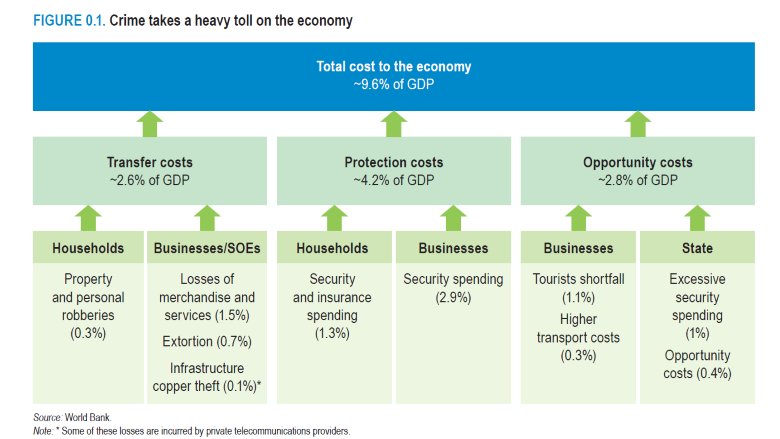South African Economic Update 14th edition, Safety first: The economic cost of crime in South Africadiscusses South Africa's economic outlook and highlights the critical need to address the challenges of high crime in order to reduce its negative impact on the economy and society as a whole.
South Africa's GDP growth is expected to return to pre-pandemic trends and increase by 0.7% in 2023 It is projected to rise to an average of 1.5% from 2024 to 2026 as power supply constraints are gradually eased. Accelerating the implementation of structural reforms will increase South Africa's growth potential.
The challenge of high crime rates undermines the country's economic dynamism, with an estimated impact of at least 10% of GDP each year. The report includes a chapter focused on the economic impact of crime in the country. High crime rates harm the economy and contribute to misallocation of resources, including property theft, protection costs, and lost economic opportunities. The report analyzes how this impact permeates throughout the economy, including businesses, households, and nations, and shows how crime contributes to the misallocation of resources in the economy and strains its growth potential. It emphasizes what you are doing.

This report discusses what is needed to address the crime challenge, drawing on theory and successful experience in South Africa and abroad. It emphasizes that:
- Addressing South Africa's high crime rates requires an integrated approach that considers the multifaceted drivers of crime.
- Addressing the decline in police power should be a key priority.
- Sustainable reductions in crime will require addressing the root causes of crime, which are linked to poor socio-economic outcomes and South Africa's tradition of exclusion, and investing in violence prevention.
- Continuing to address the legacy of state capture is critical to tackling organized crime.
- Further research is needed to better understand the cost of crime to the economy and to develop appropriate policies to combat it.
